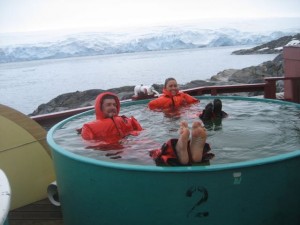Zach and I spend most of our working days here at Palmer Station bobbing around whales in our trusty Zodiac. Most of the time it is a comfortable office, with space for all of our equipment and, importantly for the work we do, a very good platform to approach whales. Kind of like Jacques Cousteau – but without the Speedos, of course.
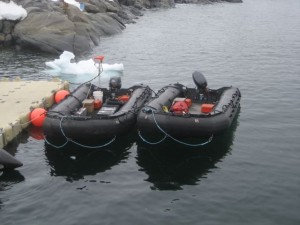
Because there is very limited dock space here, we have to launch the boat each morning using the SkyTrac, a large mobile crane. This follows our morning check of air pressure, oil levels, fuel tanks and safety equipment. And, most importantly of course, we make sure that Zach has his tea or coffee. And snacks. Lots of snacks.
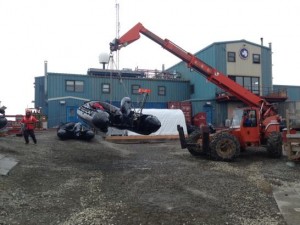
We are working in a pretty hostile important, so safety is paramount. We have survival equipment on board and there are caches with tents and stoves on some of the islands in our study area, just in case the weather comes up quickly. And it really can come up quickly. One moment it’s calm and pleasant and the next we are in the middle of a blizzard. We keep in touch with the Station by calling in our position every 30 minutes on the VHF radio.
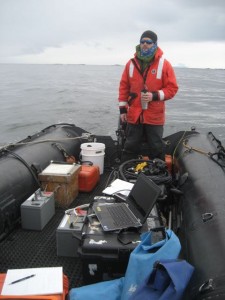
Today we accompanied the CONVERGE team (check out their great web site) to service some of their equipment on a remote island. Because the trip required a much longer trip than we usually make, we traveled with two Zodiacs and extra safety equipment. It was a very, very wet trip and we were all soaked by the time we got back to Palmer Station three and a half hours later.
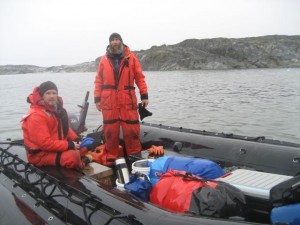
We were so wet when we returned that we wondered whether our floatation suits would still keep us afloat in case of an emergency – so Zach and Meagan Cimino, a Ph.D. student at the University of Delaware tested them in one of the outside tanks. The answer? They may be uncomfortable, but they do keep you afloat. Good to know, just in case.
